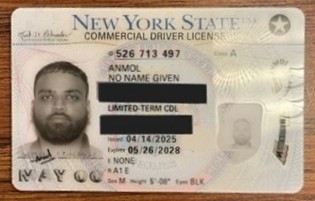Do Treaties Supersede the United States Constitution?
Are we to become a "conquered people" by our own Constitution through a treaty with a foreign power?
Did those who signed the Declaration of Independence and the U.S. Constitution have separate hands? Unalienable rights in the right hand and a scorpion in the left hand to sting to the death by the treaty-making power of Article 6 the very document designed to protect those rights which are unalienable? The resolution is unnecessary if the treaty-making power is not the supreme law of the land with unlimited power. Does this treaty or any treaty have unlimited power to invade our very homes and control us like the beasts of the field by harness, by reins and whips or limited within the structural context of a limited form of government?
Are the statements made by Rep. Kern in The Oklahoman of Tuesday, May 12, 2009 historically correct concerning her interpretation of Article 6? ""If the United State Senate signs the United Nation's treaty (U.N. Children's Treaty), Congress would have to abide by its terms, and all Oklahoma laws and laws in other states on children would be overridden.' Kern said Article 6 of the U.S. Constitution provides that treaties ratified by the US. Senate become part of the "supreme law of the land' and that state laws and constitutions are subservient to those treaties."
The following is just one of many legal authorities that cuts to the heart of the issue. "If the establishment of an "unlimited' treaty power is to be the ultimate conclusion on this great question, it must be admitted that the incorporation of the treaty-making power into the Constitution of the United States was the introduction into our governmental citadel of a Trojan horse, whose armored soldiery, for years concealed within it, now step forth armed cap-α-pie, shameless in their act of deception, eager and ready to capture the citadel upon which they pretended to bestow their gift. If such construction be possible it would be of interest to know for what purpose the Tenth Amendment was ever demanded and incorporated into the Constitution." Limitations on the Treaty-Making Power, p. 339, section 296 (1915). Henry St. George Tucker (1853-1932)
Law professor Tucker wrote a very lengthy treatise for The North American Review of April, 1914 entitled "The Treaty Making Power Under The United States Constitution." He traces the historical records, incorporating them into that treatise.
The following is just one potent example from it. "In the Virginia Convention of 1788 when the opponents of the constitution led by Patrick Henry claimed that the treaty-making power was unlimited and, therefore, unwise, Mr. Nicholas replied: "The worthy member says that they can make a Treaty relinquishing any rights and inflicting punishments because all the treaties are declared paramount to the Constitutions and laws of the States. An attentive consideration of this will show the Committee that they can do no such thing.
The provisions of the Sixth Article is that this Constitution and the laws of the United States shall be the supreme law of the land. They can by this make no Treaty which shall be repugnant to the spirit of the Constitution, or inconsistent with the delegated powers. The Treaties they make must be made under the authority of the United States to be within their province. It is sufficiently secured because it only declares that in pursuance of the power given they shall be the supreme law of the land notwithstanding anything in the Constitution or laws of the particular States.'"
Also quoted from the above treatise in section 12: Judge Thomas M. Cooley in his Constitutional Limitations, speaking of the treaty making power saying: "It is subject to the implied restrictions that nothing can be done under it which changes the constitution of the country or robs a department of the government or of any of the States of their constitutional authority."
The thoughts of James Madison on the treaty making power are noted in section 13 of the treatise. "The validity of a Treaty carrying an appropriation has frequently been the subject of acute discussion in Congress. Since Congress alone can appropriate money, the House has insisted that a Treaty providing for an appropriation of money must be submitted to the House. This question arose first under the Jay Treaty, negotiated by President Washington, in 1795, and by a vote of 63 to 36, the House asserted its prerogative. Mr. Madison, then a member of the House of Representatives, and as the Father of the Constitution, possessing the best right of any man of his day to speak to this subject, said, he would appeal to the Committee to decide, whether it did not appear, from a candid and collective view of the debates in those conventions, and particularly in that of Virginia, that the Treaty-making power was a limited power; and that the powers in our Constitution, on this subject, bore an analogy to the powers on the same subject in the Government of Great Britain. On a review of these proceedings, may not the question be fairly asked, whether it ought to be supposed that the several conventions who showed so much jealousy with regard to the powers of commerce, of the purse, and of the sword, as to require for the exercise of them in some cases two-thirds, in others three-fourths, of both branches of the legislature could have understood that, by the Treaty clauses in the Constitution, they had given to the President and Senate, without any control whatever from the House of Representatives, an absolute and unlimited power on all these great objects." (The Life and Times of James Madison. Rives, page 558-9.)
Not only have past legal authorities made the treaty making power clear, but a landmark Supreme Court case in 1957 clarifies it again in Reid v. Covert 354 U.S. 1 that the Constitution SUPERSEDES international treaties ratified by the United States Senate. "This court has regularly and uniformly recognized the supremacy of the Constitution over a treaty."
Space limitations prevent more explanation to further refute the false assumption that the treaty making power of Article 6. is unlimited. Can anyone still conclude from the brief cited authorities as to not show a reasonable doubt in their American mind that the treaty making power is limited in the context of the Constitution? Can anyone still conclude from the historical setting that the political body of that race of people in 1787 would allow a single phrase within the Constitution to destroy their liberties for which they gave their life's blood for themselves and their posterity?










Latest Commentary
Thursday 30th of October 2025
Thursday 30th of October 2025
Thursday 30th of October 2025
Thursday 30th of October 2025
Thursday 30th of October 2025
Thursday 30th of October 2025
Thursday 30th of October 2025
Thursday 30th of October 2025
Thursday 30th of October 2025